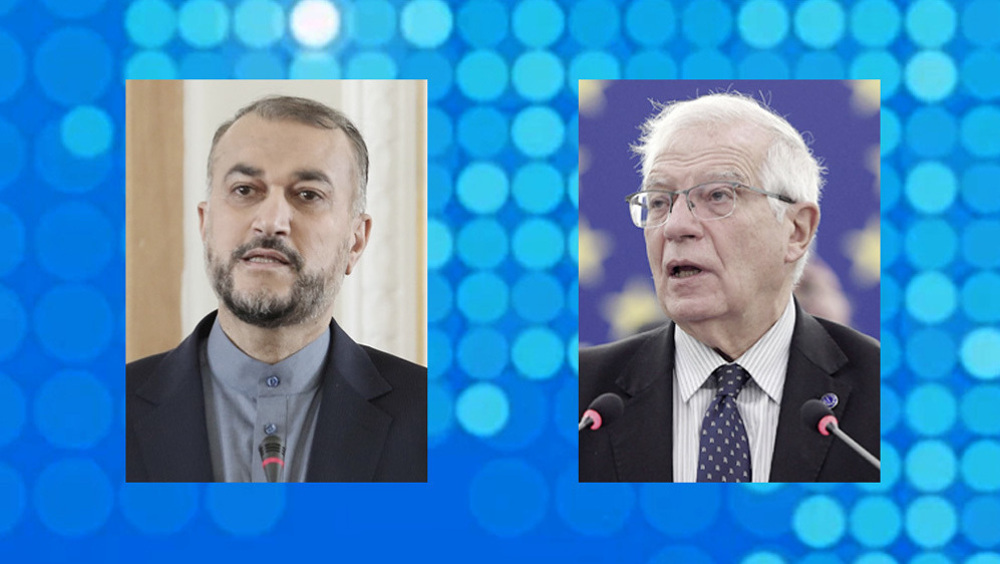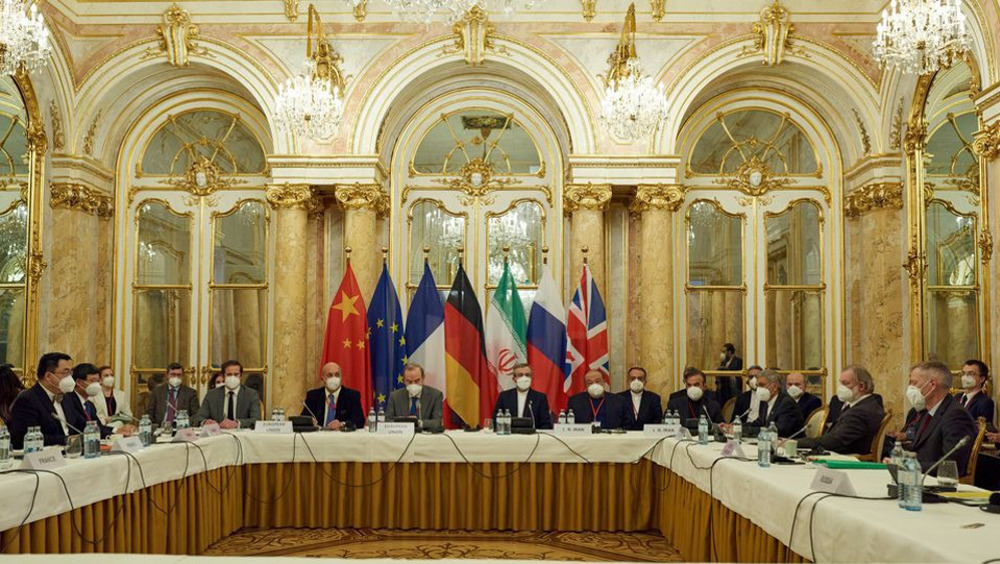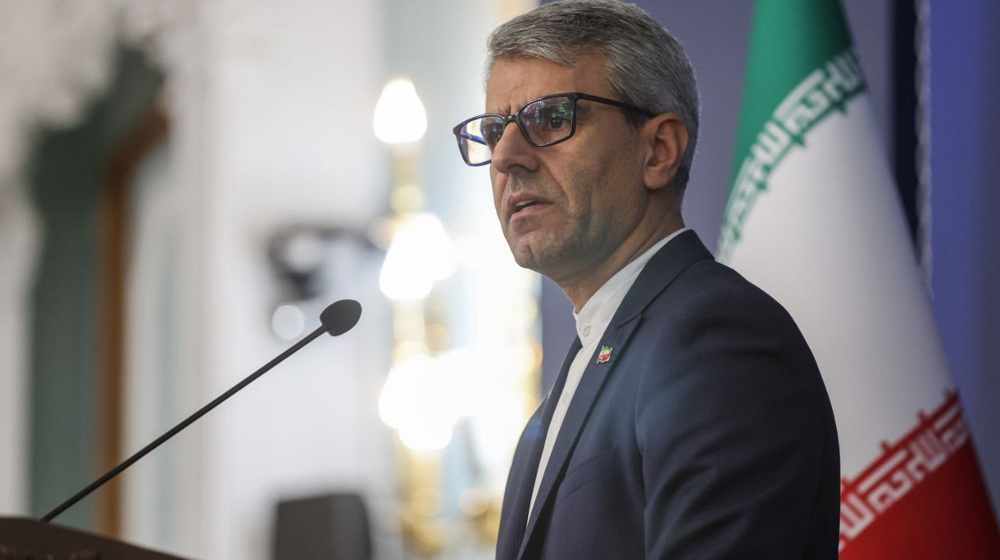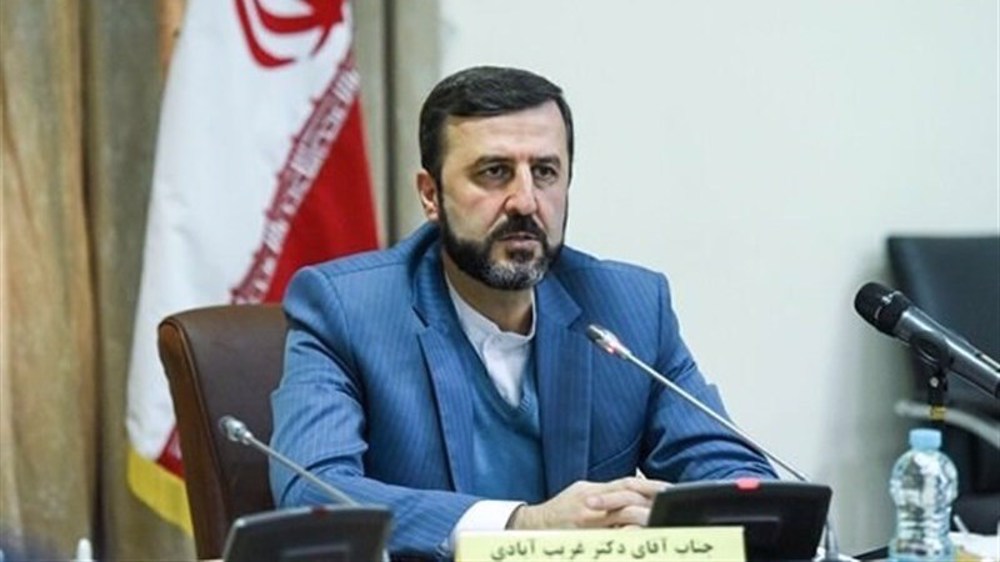Progress in Vienna depends on West’s goodwill, constructive views: Iran FM
The Iranian foreign minister has reiterated Tehran’s seriousness in achieving a good agreement with the P4+1 group of countries during the ongoing talks in the Austrian capital of Vienna, saying a rapid progress in the diplomatic process depends on the West’s goodwill and constructive initiatives.
In a phone call with European Union foreign Policy chief Joseph Borrell on Wednesday, Hossein Amir-Abdollahian said the representatives of the five remaining parties to the 2015 nuclear agreement, officially known as the Joint Comprehensive Plan of Action (JCPOA), had so far held “useful” interactions.
He expressed hope that the West would participate in the new round of the talks, which is set to begin in Vienna later on Thursday, with goodwill and constructive initiatives “so that we will witness a rapid advancement of the talks.”
The top Iranian diplomat criticized the West’s continued passivity during the Vienna talks, saying, “So far, we have not received any constructive and forward-looking proposal from the opposite side, and this contradicts its declaration of serious presence in the negotiations.”
“In the last eight years, enough has been said and no promise has been fulfilled, but it is time for action today and we are making efforts to reach a serious and good agreement,” the Iranian foreign minister said.
He added, “Iran’s nuclear program is completely peaceful but resolving the nuclear concern is directly related to the complete removal of the [US] sanctions [against Iran].”
The top Iranian diplomat expressed doubt if the West was truly ready to remove sanctions or it was merely seeking to unilaterally address its own concerns.
Iran and the five other parties to the 2015 nuclear deal are set to start a new round of negotiations on Thursday in the Austrian capital, aimed at securing a removal of the sanctions imposed by the US on Iran after its withdrawal from the accord and reviving the embattled international document.
The Iranian chief negotiator to the Vienna talks Ali Bagheri Kani arrived in Vienna on Thursday at the head of a delegation. He is scheduled to hold talks with EU deputy foreign policy chief Enrique Mora and head of the Russian and Chinese teams ahead of the JCPOA Joint Commission session.
Iran and the five remaining parties to the JCPOA began the talks in the Austrian capital in April with the aim of removing the sanctions after the US, under President Joe Biden, voiced a willingness to return to the agreement.
Diplomats from the participant countries gathered in Vienna on Monday for the seventh time, after a hiatus in the talks due to the presidential election in Iran. Five days of intensive talks ended on Friday after the sides returned to their respective capitals for more consultations.
In the previous round, Iran submitted to draft proposals to representatives of the P4+1 at the seventh round of talks in Vienna, one related to the removal of oppressive and unlawful US sanctions and the other about the nuclear issue.
Amir-Abdollahian further pointed to Iran’s “close cooperation” with the International Atomic Energy Agency (IAEA) and said a delegation from the Atomic Energy Organization of Iran was set to hold talks with the IAEA in Vienna.
He also slammed three European parties to the JCPOA —Britain, France and Germany — for adopting negative political positions for media consumption on the Vienna talks, warning that such an unconstructive campaign would further complicate the situation and slow down the process to achieve an agreement.
The top Iranian diplomat, however, hailed the “realistic and constructive” stance and views of Russia and China in this regard.
“We are all in Vienna to negotiate and achieve a good agreement,” Amir-Abdollahian pointed out.
He commended constructive efforts by Borrell and Mora to that effect and said the Iranian negotiating team, led by Bagheri Kani, would “stay in Vienna as long as necessary to reach an agreement and consult with the P4+1.”
Borrell hopes collective efforts, interaction will lead to agreement
The EU foreign policy chief, for his part, outlined what he viewed as the challenges that could harm the Vienna talks and expressed hope that the participating delegations would achieve an agreement through collective efforts and interaction.
Spoke today with Iranian Foreign Minister @Amirabdolahian at his request ahead of the next round of #JCPOA negotiations in Vienna tomorrow.
— Josep Borrell Fontelles (@JosepBorrellF) December 8, 2021
I conveyed a sense of urgency: we need to advance much quicker in the negotiations to restore the deal.
He called for the removal of certain concerns about Iran’s nuclear activities.
Canada prime minister hits back at Trump's remarks
Lebanese journalist summoned to court for criticizing president
‘The Voice of Hind Rajab’ receives Oscar nomination
VIDEO | Foreign-backed terrorism in Iran
US-backed riots suffered 'humiliating' defeat in Iran: Yemeni leader
Pezeshkian: ‘Unholy rage’ fueled by Iran’s enemies after June defeat
Iran condemns Israeli demolition of UNRWA headquarters in occupied al-Quds
Denmark reasserts Greenland sovereignty as Trump claims ‘total access’











 This makes it easy to access the Press TV website
This makes it easy to access the Press TV website